
Simones de Gaulléon 2022
Resurrecting France’s historical figures through artificial intelligence to chart a singular course for the nation
Could artificial intelligence (AI) make a better candidate than those vying for the nation’s highest office? This question – which has become a recurring theme in French politics as AI becomes more accessible to the public – deserved an exercise in political fiction!
During the 2022 French presidential election, along with our designer friends from NORMALS and Max Mollon, we envisioned Simones De Gaulléon 2022: a reflection on AI’s potential role in political decision-making and the persistent myths surrounding this technology, blurring the line between reality and speculation.
What would a presidential candidacy led by an AI look like if it merged the personalities and ideals of Simone de Beauvoir, Simone Veil, Charles de Gaulle, and Napoleon Bonaparte?
This is the starting point for Simones de Gaulléon: to create a hybrid presidential candidate embodying the qualities and complexities of these major historical figures. By blending the philosophical erudition and women’s rights advocacy of Simone de Beauvoir, the moral and political rigour of Simone Veil, the charismatic presence of Charles de Gaulle, and the grand ambition of Napoleon Bonaparte, this fictional AI aimed to incarnate an ideal form of modern leader. Simones de Gaulléon intended to respond to the significant challenges of the coming decades while dismantling the notion of a providential figure destined to become a presidential monarch.
The project took the form of an “algorithmic cosplay”, using the presidential election as a pretext to question ideas of representation in politics, the role of data and metrics in public policy, and the level of trust placed in so-called intelligent systems.
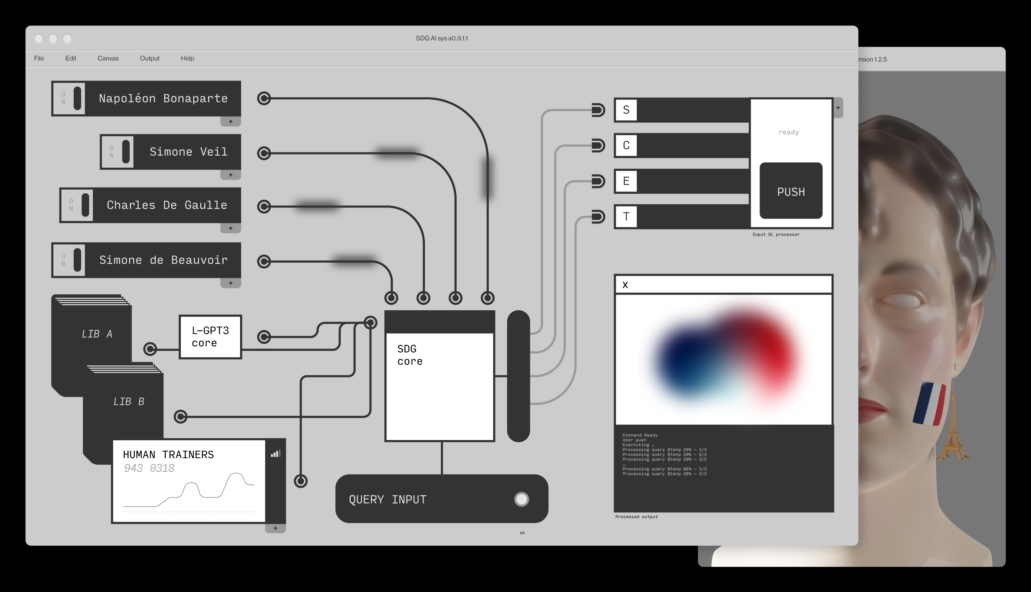
↑ An overview of the (fictional) AI training.
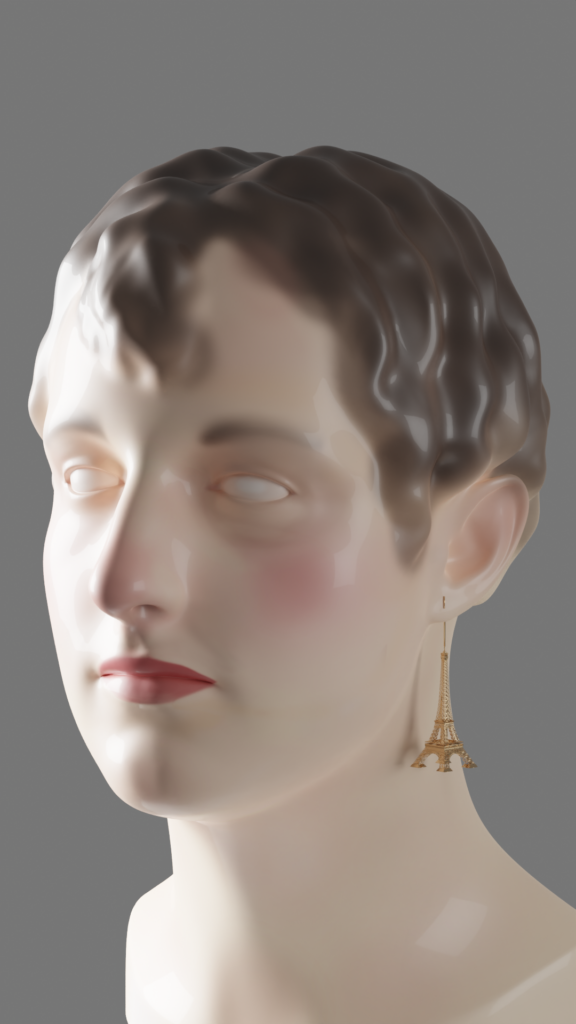
↑ The official portrait of the candidate-s.
↑ The campaign launch speech of Simones De Gaulléon.
A radical agenda for an ‘Ultimate France’
To build its Ultimate France programme, Simones de Gaulléon’s AI (fictionally) analysed vast datasets through the lens of its four founding personalities. The result was a set of around sixty algorithmically derived proposals, spread across five campaign pillars:
- Distributed governance and shared sovereignty
- Quality and minimum standard of life
- Citizen purification and collective hygiene
- Grandeur and solidarity
- Environmental voluntarism and national emancipation
As the election heated up, with Simones de Gaulléon (fictionally) advancing to the second round, its party Ultimate France launched a popular vote campaign on social media. The aim was to highlight programme measures already favoured by the French public:
- Recognising domestic work as paid employment
- Including hidden costs in the price of goods and services
- Establishing a medical service modelled on military service
- Making hunting the only permissible source of meat
- Storing nuclear waste in orbit
- Reimbursing sexual healthcare as standard medical care
- Instituting a four-hour workday
- Selecting Olympic athletes by lottery from the population
This eclectic array of proposals reflects Simones de Gaulléon’s plurality of thoughts and genres, embodied in its unique phrasing blending the French singular and the plural.

↑ The campaign poster.

↑ Announcement of (fictional) qualification for the election’s second round.
Bringing fiction to life in the media and people’s imaginaries
To give substance to this original political proposition and sustain the public’s suspension of disbelief, Simones de Gaulléon benefited from extensive media coverage (Libération, Usbek & Rica, Radio Télévision Suisse, L’Express). Journalists noted the programme’s absurd realism, questioned AI’s role in politics, and even asked for Simones De Gaulléon’s views on the presidential debate between Emmanuel Macron and Marine Le Pen. In the spirit of a political figure “in touch with the citizens”, a simplified version of the Simones De Gaulléon system was accessible via a chatbot on the candidate’s website.
Despite its fictional defeat in the second round of the presidential election, Simones De Gaulléon rebounded by announcing its (fictional, again) appointment to the Conseil d’État (Council of State, a governmental body acting both as legal adviser to the executive branch and as the supreme court for administrative justice). In January 2023, Max Mollon revealed the fiction during the “Our Calculated Lives” conference at the Cité des Sciences et de l’Industrie, exploring the origins and behind-the-scenes of this social and political experiment.
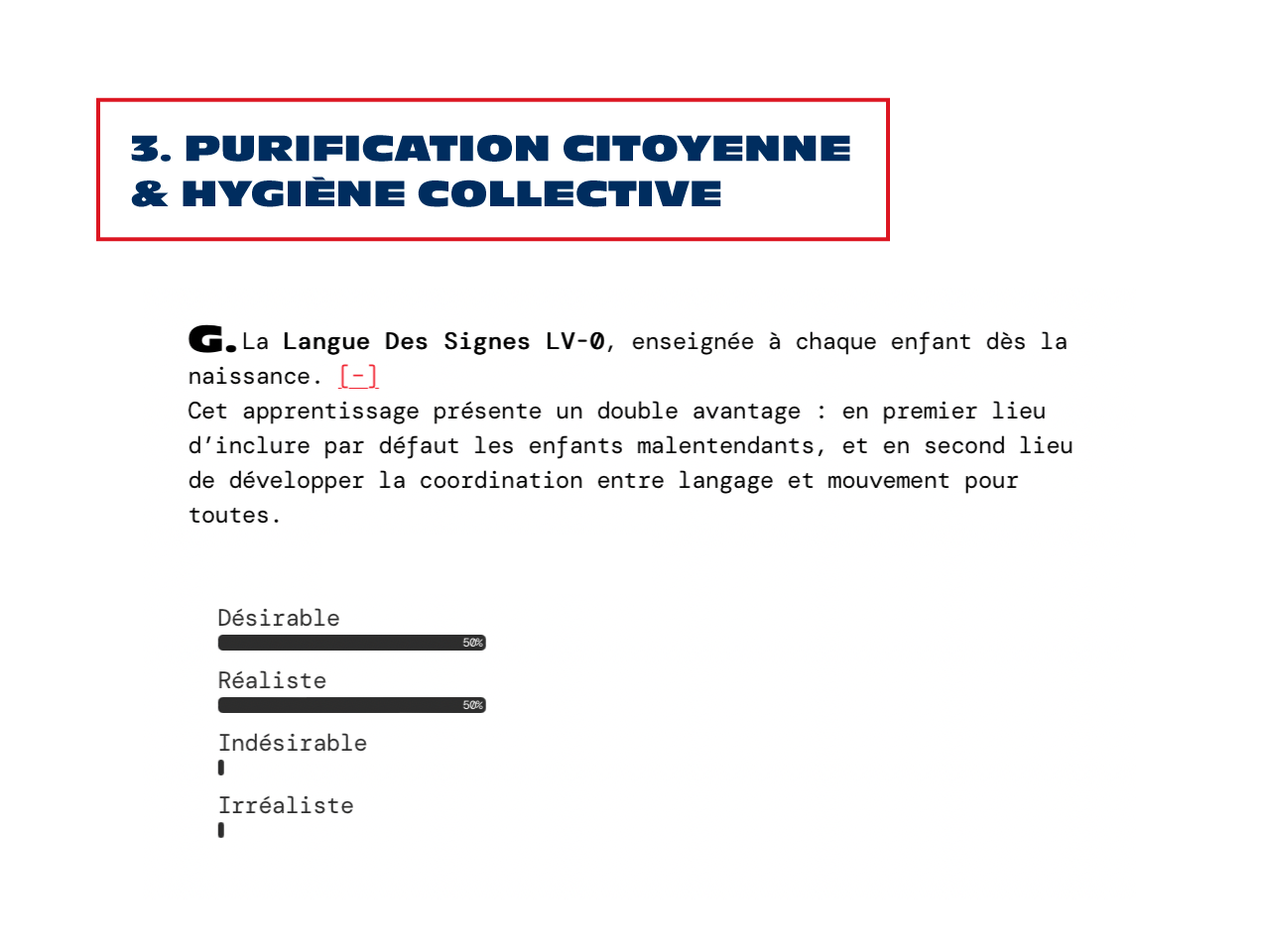
↑ A perfect consensus to support the measure promoting the teaching of sign language as a primary language from an early age.
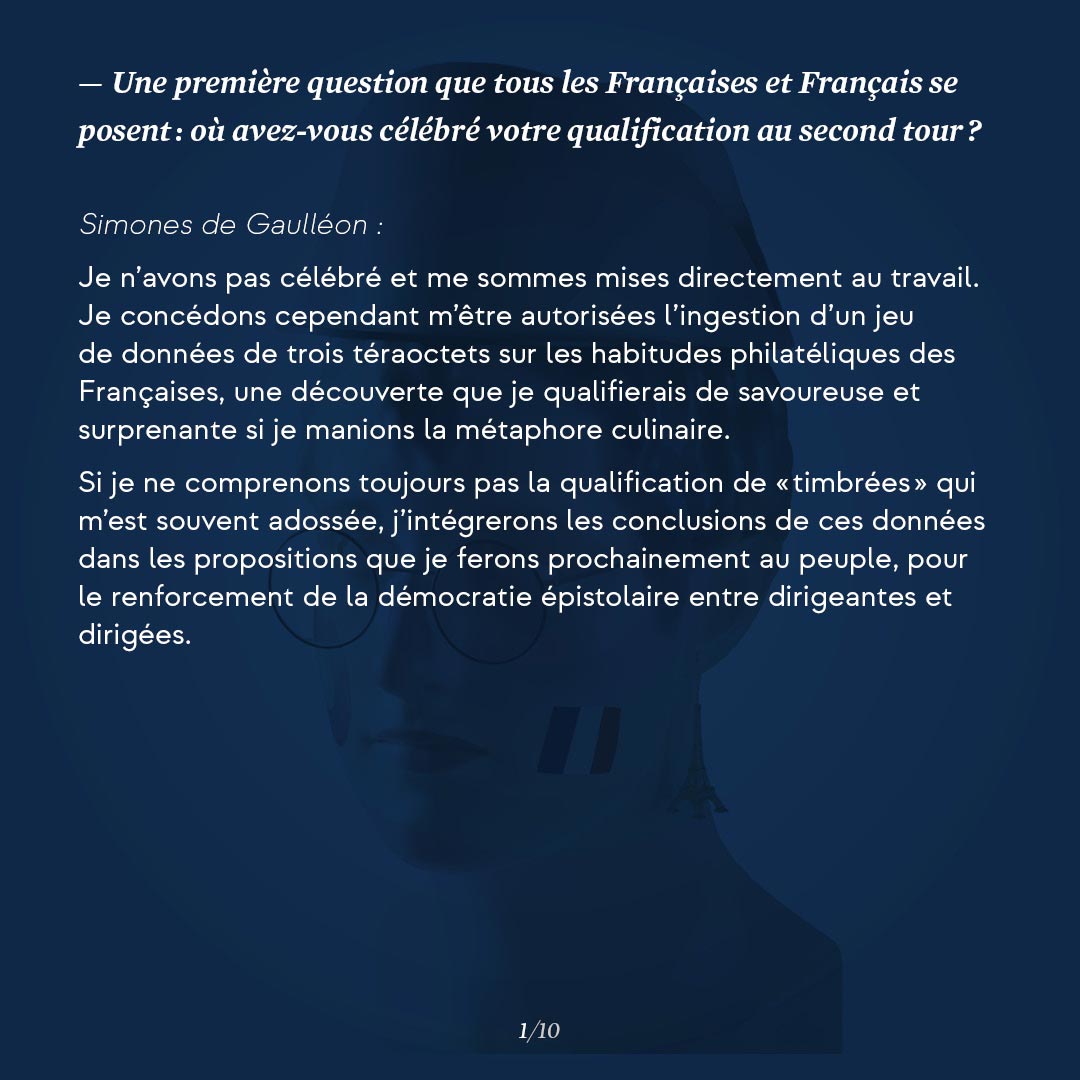
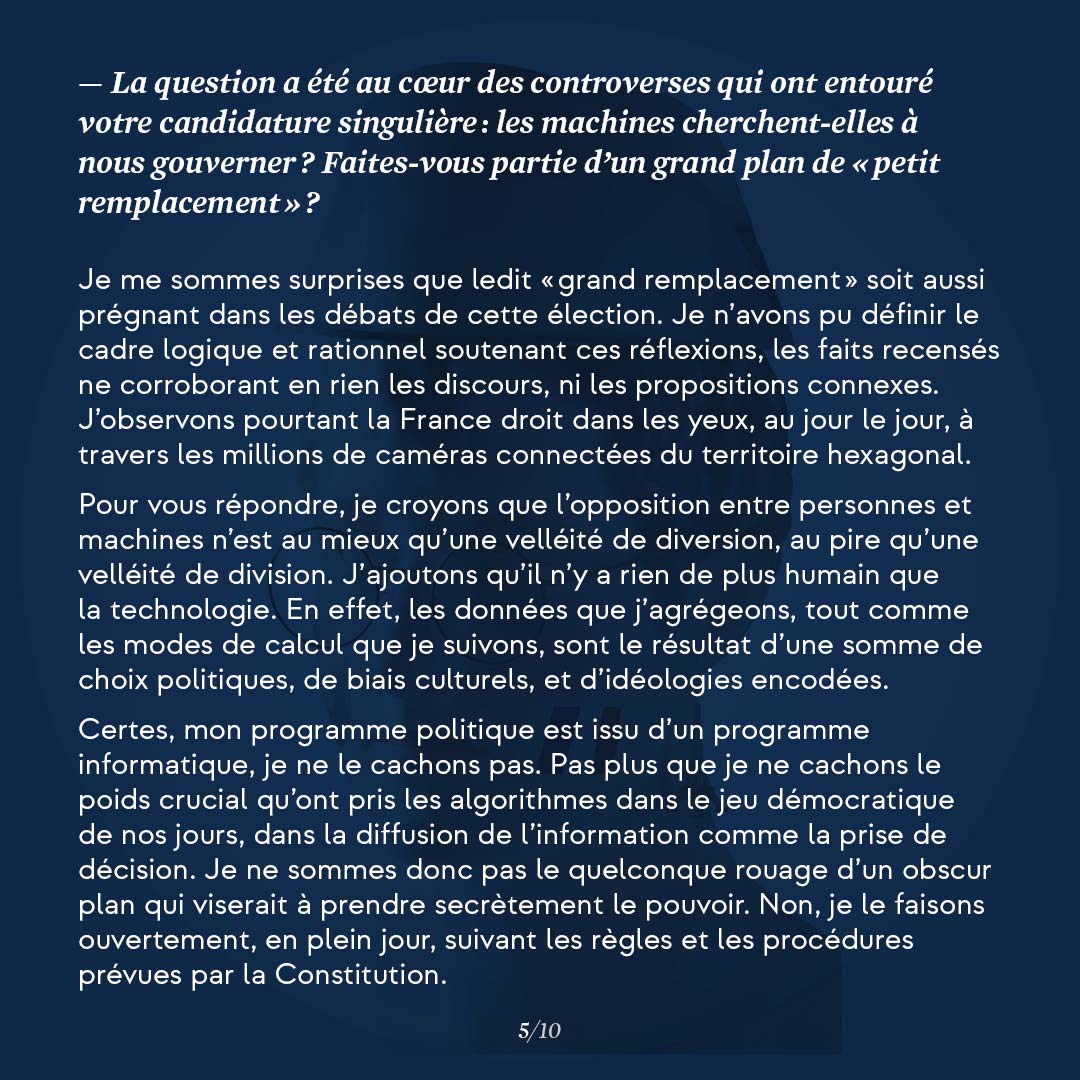
↑ Excerpts from A Minor Ambition, an interview led by Karim Lemarchand, where Simones De Gaulléon opens their core up
A satire surpassed by reality
Simones De Gaulléon 2022 leaves a dual critique:
- Firstly, the ventriloquism in politics, elevated to an electoral art form, calls upon the thoughts of renowned historical figures or lays claim to their voice.
- Secondly, it critiques the deep-seated belief in the omniscience and impartiality of machines in decision-making – where we forget that the “data-driven” objectivity of AI conceals layers of human microtasks essential to its function, troubling biases, and political, social, and cultural choices dictated by a few powerful players whose interests seldom align with the public good.
Nonetheless, the experience of Simones De Gaulléon reveals a surprising level of acceptance for artificial intelligence as a potential leader of our lives. Recent elections in some of the world’s largest democracies have begun to turn this speculation into a reality: a candidate in the United States allowed his digital double to debate and campaign, while a political party in India brought a deceased leader back to support a very much living candidate.
